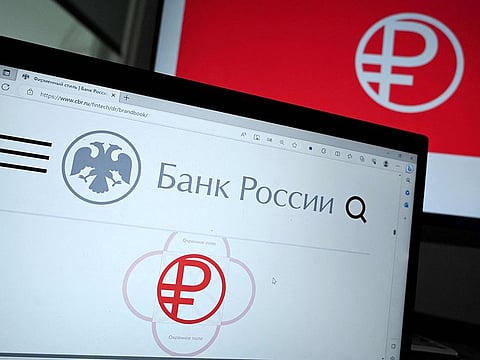Russia launches test phase for digital ruble
Digital rubles are issued by the Russian central bank and stocked in electronic wallets

Moscow: Russia launched the test phase of a digital ruble on Tuesday, in a bid to limit the impact of international sanctions imposed following its offensive in Ukraine.
"On August 15, the tests of operations with real digital rubles began," Russia's central bank told AFP.
The trial phase involves 13 other banks and 600 individuals who can make payments at 30 sales points in 11 Russian cities, it added.
"Operations will be free for citizens and with a minimal commission for businesses" in the long run, the central bank said.
VTB, Russia's second-largest bank, said it had successfully tested transactions using digital rubles in its mobile app.
Moscow's foray into digital currencies aims to limit the impact of international restrictions on its financial system.
Moscow has sought to de-dollarise its transactions and develop alternative payments systems, after many Russian banks were excluded from the widely used SWIFT system following the outbreak of the Ukraine conflict last year.
Like cryptocurrencies, the digital ruble uses blockchain technology, which facilitates direct transactions through a decentralised database.
The main difference lies in its status as a "central bank digital currency", which is tightly controlled.
The digital rubles are issued by the Russian central bank and stocked in electronic wallets, with the FSB national security service monitoring the system.
The authorities say digital rubles will make payments safer, but some observers see an attempt by the government to further control its citizens.
According to researchers at the Atlantic Council, Russia has become the 21st country to enter the test phase for a digital currency.
Moscow hopes the new currency will be extended to all Russians who want it "by 2025 to 2027", the central bank told AFP.







